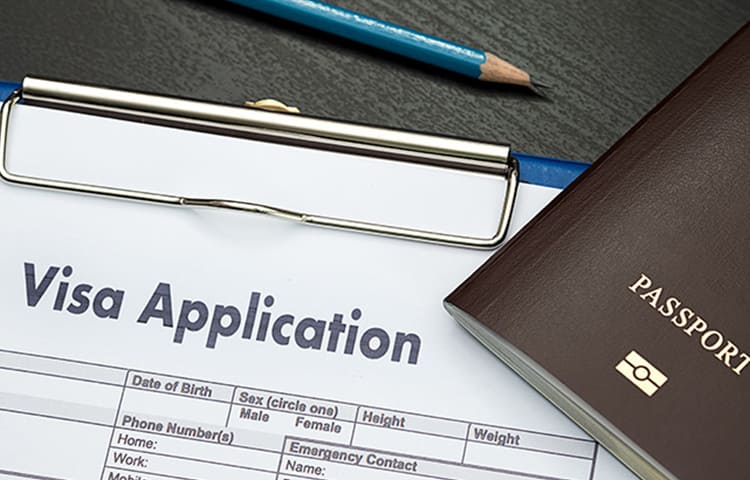Definitely a huge plus for any Indian national who wishes to settle in Europe is the various benefits that a Lithuanian passport offers, such as the right to live, work, and travel anywhere in the EU. The actual trip of attaining the status involves a legal framework requiring several years of residency, command of the language, and conformity to different laws set for legal migration to Europe and obtaining Lithuanian citizenship.
Knowing the process ahead allows contingencies that lie ahead to be foreseen and appropriate measures to be taken to smoothen the transition.

Who Can Apply for Lithuanian Citizenship?
Lithuanian citizenship by naturalization still remains to be the prominent pathway for the Indian Nationals. To be eligible, an applicant must have resided in Lithuania for at least ten years legally, proving he/she has had a steady income enough to support himself/herself and a clear legal record. An important requirement remains the passing of a state-recognized test in the Lithuanian language at least at the A2 level along with the examination on the history of Lithuania and the Constitution.
Lithuania, in general, does not allow dual citizenship for many countries. Hence, Indian nationals should renounce their Indian citizenship upon the acceptance of their application. Exceptions, though rare, can be made for persons of Lithuanian descent or those granted refugee status. If maintaining Indian citizenship is important, then the best alternative could be acquiring the EU long-term residence permit.

Moving to Lithuania Legally and Establishing Residency
How to legally move to Europe? The Indian nationals must first obtain legal premises in Lithuania for an application of citizenship. Generally, work-based residency permits are one of the most commonly availed avenues, wherein a job offer from a Lithuanian employer is sought. For the highly skilled professionals, another avenue is the EU Blue Card. Business investors can establish a company in Lithuania and seek a residence permit through entrepreneurship, while students may initially arrive on a study visa.
Nevertheless, the time spent in Lithuania with a student visa will not count towards the ten years needed for citizenship. Family reunification may also serve as a potential avenue for people with close relatives in Lithuania. An additional option entails residence permits for spouses of Lithuanian nationals or foreigners with Lithuanian lineage, which in turn can lead to permanent status and ultimately citizenship. From the fifth year of legal residency in Lithuania, applicants are entitled to apply for the EU Long-Term Residence Permit, which is a very important step towards citizenship eligibility.

Application Process and Required Documents for Lithuanian Citizenship
How to legal immigration to Europe? The process of acquiring Lithuanian citizenship starts with having to pass examinations, out of which the most significant are the proficiency test and an examination covering the history of the land and its legislation.
Afterward, the prospective citizens need to put together lengthy lists of specified legal documents for living in Europe, such as a valid passport, proof of continuous residence in Lithuania, and evidence showing that they passed the tests on language and history. All the documents must undergo official translation into the Lithuanian language and certification before submission.
One year is also going to be the time during which the application stays with the Lithuanian Migration Department after acceptance. In the case of positive consideration, the applicant must move to the next step in the process of formally renouncing Indian citizenship, as dual citizenship is not allowed by Lithuania in most cases. Finally, an oath of allegiance to Lithuania is given by these applicants and then they become eligible to apply for citizenship and a passport.

Challenges and Considerations
The road to citizenship is not An easy one. A discernible huddle for Indian nationals is the requirement of a Lithuanian language test, since learning a new language has to be much effort and takes a lot of time. This is further limited by a ten-year residency requirement, which means maintaining legal status and compliance with immigration laws over a long time. Bureaucratic delays and many tedious pages of documentation may prove to be hindrance in itself at these points.
Applicants rejected in their applications may appeal in Lithuanian administrative courts. Some roadblocks can be avoided through legal guidance, thus assuring that all relevant requirements are fully met and increasing the chances of a favorable outcome.
To check your documents, follow this link.
Key Takeaways
The process of acquiring Lithuanian citizenship remains a long-term commitment, but it is a worthwhile endeavor for Indian nationals who are looking for stability and prospects in Europe. Careful advance planning, legal concerns, and adaptability to the new culture will be the essence of a smooth process. Knowledge of the path to Lithuanian citizenship, documentation preparations required for living in Europe, and updates with any change in the immigration policy will work toward the advantage of the applicant transitioning smoothly.



